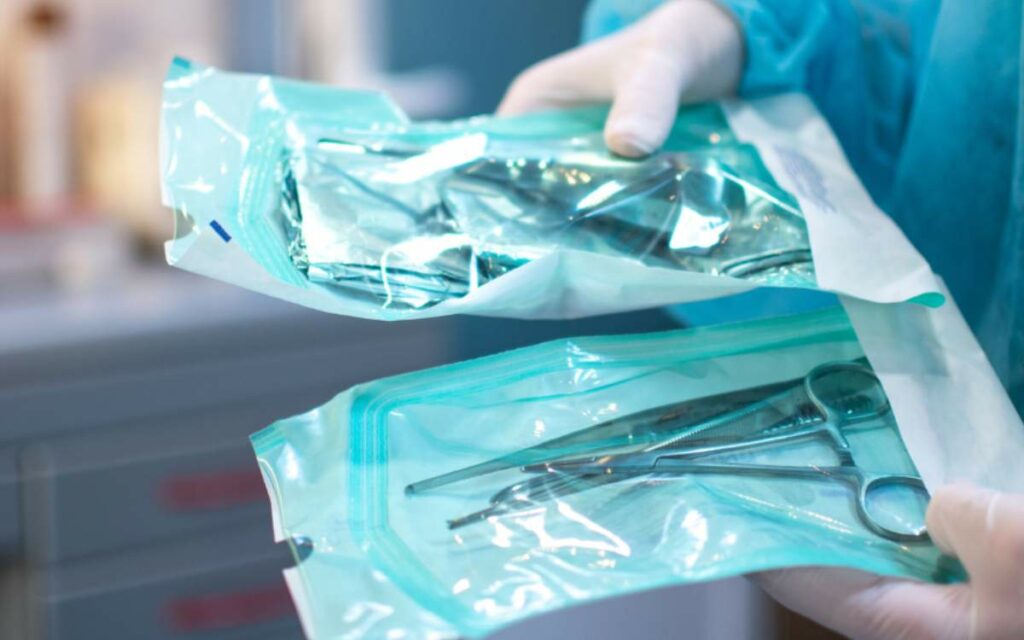
Despite certain government actors and activist groups trying to paint the material with a broad brush of all-bad-all-the-time, the benefits of plastic abound. Photo credit: AMAC Technologies
The federal government’s foolish and misinformation-driven war on plastics continues. After implementing a ban on the manufacture and importation of a handful of plastic products such as plastic cutlery, checkout bags, takeout containers, and straws at the end of 2022, a number of environmental groups have recently launched a campaign called Expand the Ban. As virtually all of these so-called environmental groups are funded by our tax dollars, we can assume they are acting as a proxy for government, and notably the federal Liberal government.
The various environmental groups have claimed that the current ban only deals with about three per cent of the plastic waste generated in Canada. This is likely true, and merely illustrates that government activities have more to do with virtue-signalling than anything else. For example, it is laughable that checkout bags at supermarkets are banned yet in the same store you can purchase a package of plastic garbage bags – which are thicker and more difficult to dispose of than the thin checkout bags. Some grocery stores have switched to paper bags instead of plastic, despite studies that show paper bags are as bad or worse for the environment than plastic.
Nevertheless, the federal government has set a goal of achieving zero plastic waste by 2030, a goal that will probably join all the other impractical climate-related goals in never being achieved.
The stated goal of most of these environmental groups is not just to expand the plastics ban to other products but to curb the production of plastics in general. But if Canada reduces plastic production, how can we ensure that we continue to produce the most useful and irreplaceable plastics products in Canada to serve the Canadian market?
During the pandemic we saw the downsides of having to import essential Personal Protective Equipment (PPE) and other important plastic products, and how vital it was to retain Canadian manufacturing capacity in essential industries. Canada is fortunate to have a robust domestic plastics manufacturing industry that should not be compromised because of some imbalanced views on the downsides of some plastics versus the many positives plastic products bring to the table.
It so happened I recently had some shoulder surgery to repair a torn rotator cuff. The surgeon used some tiny anchors to adhere the tendon back on to the bone. When I asked him what the anchors were made of, he said plastic – a particularly durable plastic that would not react with anything else in the body and would last for life. This is but one of many applications in the health care system for various types of plastics as they are sterile, durable and cannot be replaced by anything else that would be as effective. It is also another example of why it is absurd to believe plastic can ultimately be phased out and replaced by other materials.
There are definitely issues with plastic pollution, but the majority of those can be dealt with via better and more comprehensive recycling. Plastic bottles, for example, are 100 per cent recyclable, as are many other plastic products, but consumers and governments need to be more diligent in ensuring the recycling takes place.
Canadian businesses also continue to innovate, producing plastic products that are better and faster at degrading in landfills, including grocery store check-out bags. Strangely, even when these innovative products have been proven to be positive for the environment, the Trudeau government goes on to ban them. It seems that the government is really just bound and determined to eliminate the oil and gas industry, including the valuable plastic products it enables, rather than acknowledge that the many innovative plastic products on the market today can alleviate concerns about plastics.
Once again, it seems like a knee-jerk reaction to some plastic pollution is being used to obscure the many positives that the range of products made with plastic bring to our lives. Instead of a superficial, virtue-signalling approach, governments need to balance the many advantages plastics provide to health care, sterile food packaging, enabling lighter automobiles that are more energy efficient, among others, with any downsides.
Plastic really is fantastic, and often irreplaceable. Governments need to acknowledge that and devise their policies accordingly.

She has published numerous articles in journals, magazines & other media on issues such as free trade, finance, entrepreneurship & women business owners. Ms. Swift is a past President of the Empire Club of Canada, a former Director of the CD Howe Institute, the Canadian Youth Business Foundation, SOS Children’s Villages, past President of the International Small Business Congress and current Director of the Fraser Institute. She was cited in 2003 & 2012 as one of the most powerful women in Canada by the Women’s Executive Network & is a recipient of the Queen’s Silver & Gold Jubilee medals.




















